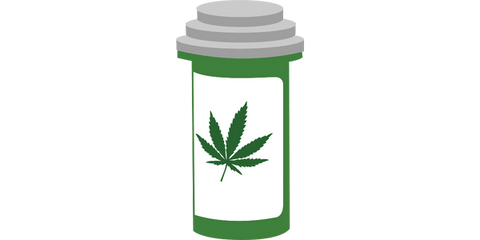California has been the number one cannabis-producing state for decades, and the region’s culture is inextricably linked to cannabis. The Golden State was the first area in the country to legalize medical marijuana and has been an epicenter of legalization efforts ever since.
In 2016, California went the way of Colorado and Washington state, formally legalizing recreational cannabis. Some see the state’s newer recreational allowances as rendering medical cannabis mostly obsolete. But is that really true? Now that weed is totally legal in Cali, do you even need to bother with getting a medical card?
Recreational Cannabis In California

In November of 2016, California voters passed Proposition 64, also known as the Adult Use Of Marijuana Act. This piece of legislation allows citizens to carry up to an ounce of dried bud on their person, cultivate up to six plants, and use cannabis in their own homes. The bill also explicitly states that Prop 64 is not meant to amend or replace the Compassionate Care Act, which legalized medical marijuana in 1996.
Surprisingly, despite recreational being legal, much of the cannabis cultivated in the state is sold on the illicit black market. Even many of the brick-and-mortar dispensaries located in California are unpermitted and technically operating outside the law. Cultivators, manufacturers, and sellers who take part in black market sales claim they can make more money by circumventing the State’s strict regulations.
However, this exposes the public to illegal pesticides and untested cannabis products which could potentially be contaminated by mycotoxins, heavy metals, or microbrials. For these reasons, when cannabis shopping in Cali, it’s advised to avoid dispensaries with unlabeled cannabis products.
Does California Still Require A Medical Cannabis Card?
Now that recreational cannabis is legal in the state, tourists and residents alike are wondering, do dispensaries require a medical cannabis card?
The answer will depend on which kind of dispensary you’re visiting. Obviously, illicit dispensaries won’t require a medical card. Legal recreational dispensaries won’t require a medical card either. Only dispensaries with a designated medical status require patients to provide an MMJ card.
Requirements For Medical Cannabis Card In California

Getting a medical cannabis card may seem like a daunting task, but it’s actually pretty simple. According to California’s Department of Cannabis Control, physician’s can recommend cannabis for the following conditions:
-
Acquired immune deficiency syndrome (AIDS)
-
Anorexia
-
Arthritis
-
Cachexia (wasting syndrome)
-
Cancer
-
Chronic pain
-
Glaucoma
-
Migraine
-
Severe nausea
-
Persistent muscle spasms (for example, spasms caused by multiple sclerosis)
-
Seizures (for example, epileptic seizures)
The first step in acquiring a medical card is to complete the application form found here. Once your form is filled out, you’ll need to submit it in-person to your county health department. Then, the health department will schedule an appointment where your photo will be taken for your medical card.
This will also be the point where you pay the application fee, the exact cost of which will vary from county to county but will not exceed $100. Next, you’ll need to wait for approval and your card to arrive in the mail. This could take up to a month’s time.
Is It Worth Getting The Cannabis Card If I Live In California?

Whether or not the process and costs of getting a medical card are worth it is completely subjective. However, there are some clear benefits to possessing one.
The first and likely most appealing of these benefits is a price reduction. Medical cannabis tends to sell for cheaper costs than recreational. Plus, medical patients have fewer taxes to pay on their cannabis than those just buying recreational weed.
Medical patients also have special allowances. For example, they can purchase, cultivate, and possess more cannabis at a time than recreational users. Medical dispensaries are also allowed to carry more potent products than recreational dispensaries, giving patients access to high mg products restricted to recreational buyers.
For some, these benefits are well worth the cost and hassle of getting a medical card, but others may be perfectly satisfied with the recreational system. It all has to do with personal preference.



